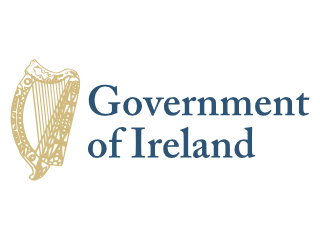Celtic tribes arrived on the island between 600 and 150 B.C. Invasions by Norsemen that began in the late 8th century were finally ended when King Brian BORU defeated the Danes in 1014. Norman invasions began in the 12th century and set off more than seven centuries of Anglo-Irish struggle marked by fierce rebellions and harsh repressions. The Irish famine of the mid-19th century saw the population of the island drop by one third through starvation and emigration. For more than a century after that the population of the island continued to fall only to begin growing again in the 1960s. Over the last 50 years, Ireland's high birthrate has made it demographically one of the youngest populations in the EU. The modern Irish state traces its origins to the failed 1916 Easter Monday Uprising that touched off several years of guerrilla warfare resulting in independence from the UK in 1921 for 26 southern counties; six northern (Ulster) counties remained part of the UK. Unresolved issues in Northern Ireland erupted into years of violence known as the "Troubles" that began in the 1960s. The Government of Ireland was part of a process along with the UK and US Governments that helped broker what is known as The Good Friday Agreement in Northern Ireland in 1998. This initiated a new phase of cooperation between the Irish and British Governments. Ireland was neutral in World War II and continues its policy of military neutrality. Ireland joined the European Community in 1973 and the euro-zone currency union in 1999. The economic boom years of the Celtic Tiger (1995-2007) saw rapid economic growth, which came to an abrupt end in 2008 with the meltdown of the Irish banking system. Today the economy is recovering, fueled by large and growing foreign direct investment, especially from US multi-nationals.
Ireland is a parliamentary republic.
Source: CIA World Factbook
Members:
Resources
Displaying 16 - 20 of 137European Communities (Control of Major Accident Hazards Involving Dangerous Substances) Regulations 2006 (S.I. No. 74 of 2006).
These Regulations impose duties in respect of safety management systems, preparation of safety reports and emergency preparedness. They carry into effect in Ireland Council Directive 96/82/EC on the control of major accident hazards involving dangerous substances as amended. The Regulations also deal with provision of advice on major hazards in the context of land-use planning decisions.
Registration of Deeds Rules, 2009 (S.I. No. 350 of 2009).
These Rules provide for the registration of an entry of compliance with a property adjustment order, pursuant to section 9 of the Family Law Act 1995 or section 14 of the Family Law (Divorce) Act 1996 as amended by sections 74 and 75 of the Civil Law (Miscellaneous Provisions) Act 2008. An application for cancellation of a Property Adjustment Order pursuant to section 9 of the Family Law Act 1995 or section 14 of the Family Law (Divorce) Act 1996 may be made in Form 13, 14 or 15 in the Schedule of Forms to these Rules.
Registration of Deeds Rules 2008 (S.I. No. 52 of 2008).
These Rules provide general rules for the Registry of Deeds as provided for by section 33 of the Act the Registration of Deeds and Title Act 2006. The Register shall consist of information required by the Act and these Rules to be maintained in respect of each deed registered under the Act. The Rules provide for matters of administration and prescribe forms. The Registry shall be maintained by the Property Registration Authority.
Environment (Miscellaneous Provisions) Act 2011 (No. 20 of 2011).
This Act amends environment protection legislation in relation to a variety of matters including; civil proceedings in relation with environmental damage; fines and fixed payment notices for air pollution offences; modification of waste generation levy; development, including development for which an environmental impact assessment or an appropriate assessment is required, exempted from development authorization requirements; investigations in unauthorized development by a planning authority; observations at an appeal made by a Member State or another state which is a party to the Transboun
European Communities (Good Agricultural Practice for Protection of Waters) Regulations 2006 (S.I. No. 378 of 2006).
These Regulations make provision for public support for good agricultural practice to protect waters against pollution from agricultural sources. The aim of the Regulations is to reduce pollution of the environment and especially groundwater and surface water resources by more ecologically sound agricultural practice.


